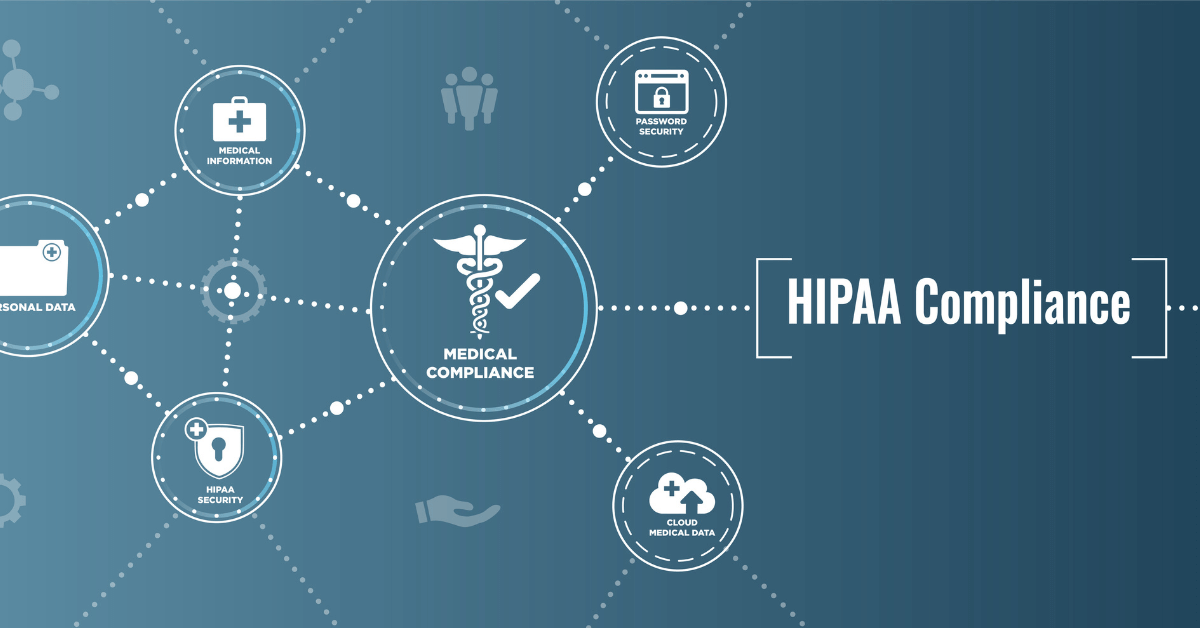HIPAA+SOC 2: Why Dual-Compliant Healthcare Hosting
In today’s digital healthcare landscape, ensuring the security and privacy of sensitive patient data has never been more crucial. HIPAA-compliant and SOC 2-compliant hosting is the bedrock for data and healthcare application security and integrity. For healthcare organizations navigating the complexities of data protection, understanding the importance of HIPAA and SOC standards, including SOC 1 Type 2 and SOC 2 Type 2 compliance, is essential.
This blog explores how HIPAA and SOC 2 compliance synergistically enhance an organization’s approach to data protection/cybersecurity and data privacy. We will also examine why opting for a healthcare hosting solution meeting these stringent criteria is beneficial and necessary for healthcare organizations today.
What Is Dual Compliance and Why Is It Critical?
HIPAA and SOC 2 represent pivotal regulatory standards that lay down extensive measures for safeguarding patient and customer information. By adhering to both, organizations bolster their cybersecurity defense against data breaches and underscore their commitment to data security and privacy, which are vital in cultivating trust.
HIPAA Compliance: The Foundation of Patient Data Security
HIPAA compliance safeguards Protected Health Information (PHI), mandating rigorous security measures. It’s not just about legal adherence; it’s about building a trust-filled relationship with patients. Organizations seeking HIPAA-compliant hosting proactively secure sensitive health data against breaches and unauthorized access.
SOC Compliance: Extending Security Beyond Financial Reporting
While SOC 1 is focused on financial reporting, SOC 2’s relevance to data security makes it particularly pertinent for healthcare organizations. With its emphasis on security, availability, processing integrity, confidentiality, and privacy, SOC 2 Type 2 compliance showcases a provider’s continuous dedication to stringent security standards.
The Distinction Between Type 1 and Type 2 Compliance
Understanding the difference between Type 1 and Type 2 compliance is crucial. Type 1 evaluates control design, whereas Type 2 assesses operational effectiveness over time, which is critical for consistently protecting health care data.
What Are the Benefits of Dual Compliance?
Dual compliance brings several critical advantages to healthcare organizations, enhancing data security and building trust.
Ensuring Comprehensive Data Security
Choosing a dual-compliant hosting provider means adopting a comprehensive approach to security, safeguarding all organizational data, and minimizing the risks of data breaches and their associated impacts, such as financial losses or reputational costs.
Building Trust Through Demonstrated Commitment
Earning the trust of patients and partners is essential for healthcare organizations. Complying with HIPAA and SOC 2 standards reinforces a commitment to data protection, enhances credibility, and attracts those prioritizing security and privacy.
Gaining a Competitive Edge
The alignment between HIPAA and SOC 2 standards enables organizations to streamline their compliance efforts, offering efficiency and thoroughness that can distinguish them in the competitive healthcare market.
Simplifying Compliance and Risk Management
Opting for dual-compliant hosting simplifies compliance and significantly mitigates risks, safeguarding the organization’s reputation and financial well-being.
What Types of Digital Assets Benefit from Dual Compliance?
Dual compliance is critical across various digital assets and services in the healthcare sector, ensuring security, privacy, and compliance.
- Electronic Health Records (EHR) Systems. These systems digitally store comprehensive patient health information central to modern healthcare operations. Ensuring their hosting environment is secure and compliant is critical.
- Medical Imaging Storage and Sharing. Systems like Picture Archiving and Communication Systems (PACS) that store and facilitate sharing medical images (e.g., X-rays and MRIs) must be hosted in environments prioritizing data protection and privacy.
- Telehealth Services. With the rise of telemedicine, platforms that provide remote clinical services need secure and compliant hosting to protect patient privacy and data integrity during virtual consultations.
- Mobile Health Applications (mHealth). Apps that offer health-related services on smartphones and tablets, including patient portals, require a hosting environment that safeguards user data.
- Patient Management Systems. Tools for scheduling, billing, and managing patient flows rely on secure and compliant hosting to protect sensitive information and ensure service availability.
- Pharmacy Management Systems. Systems that manage medication prescribing, dispensing, and administration must operate in a secure hosting environment to protect patient data and ensure compliance with healthcare regulations.
- Clinical Decision Support Systems (CDSS). These applications provide healthcare professionals with patient-specific advice based on clinical guidelines and patient information, necessitating a secure and compliant hosting environment for sensitive data analytics.
- Health Care Payment Systems. Systems that process payments, insurance claims, and other financial transactions in the healthcare sector must be hosted in environments that ensure the security and confidentiality of economic and personal health information.
- Health Information Exchanges (HIEs). Platforms that enable the sharing of health-related information among organizations according to nationally recognized standards also require secure and compliant hosting environments to protect data during exchange.
- Research and Development Platforms. Platforms used for clinical trials and medical research, which handle vast amounts of sensitive data, including patient health information and proprietary data, must be hosted in environments that ensure data integrity and confidentiality.
In all cases, prioritizing security, privacy, and compliance in the hosting environment is essential for protecting against data breaches, ensuring data integrity, and maintaining trust.
Securing HIPAA- and SOC 2-compliant Healthcare Managed Hosting
For over 30 years, AIS Network has been a leader in providing secure, compliant hosting services tailored to the healthcare sector. We understand the unique needs of healthcare organizations and are committed to offering a secure hosting environment that aligns with your data protection goals.
Are you ready to secure your healthcare organization’s digital future with hosting that adheres to the highest compliance standards? Contact us today for a no-cost consultation. Let’s explore how our HIPAA and SOC 2-compliant hosting expertise can support your organization.

